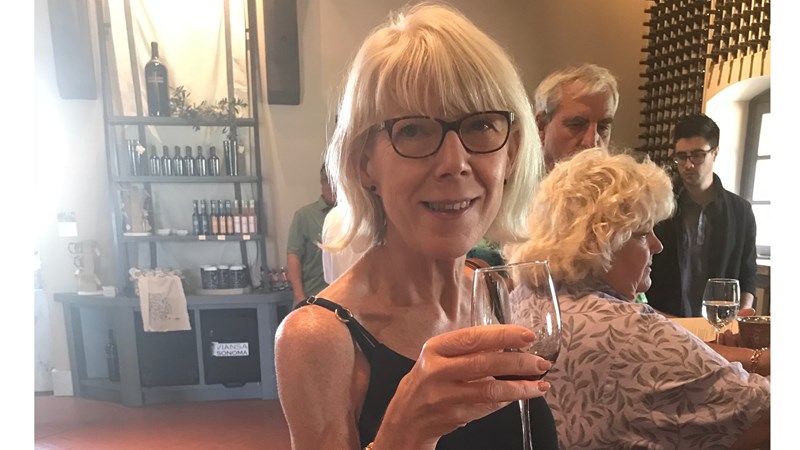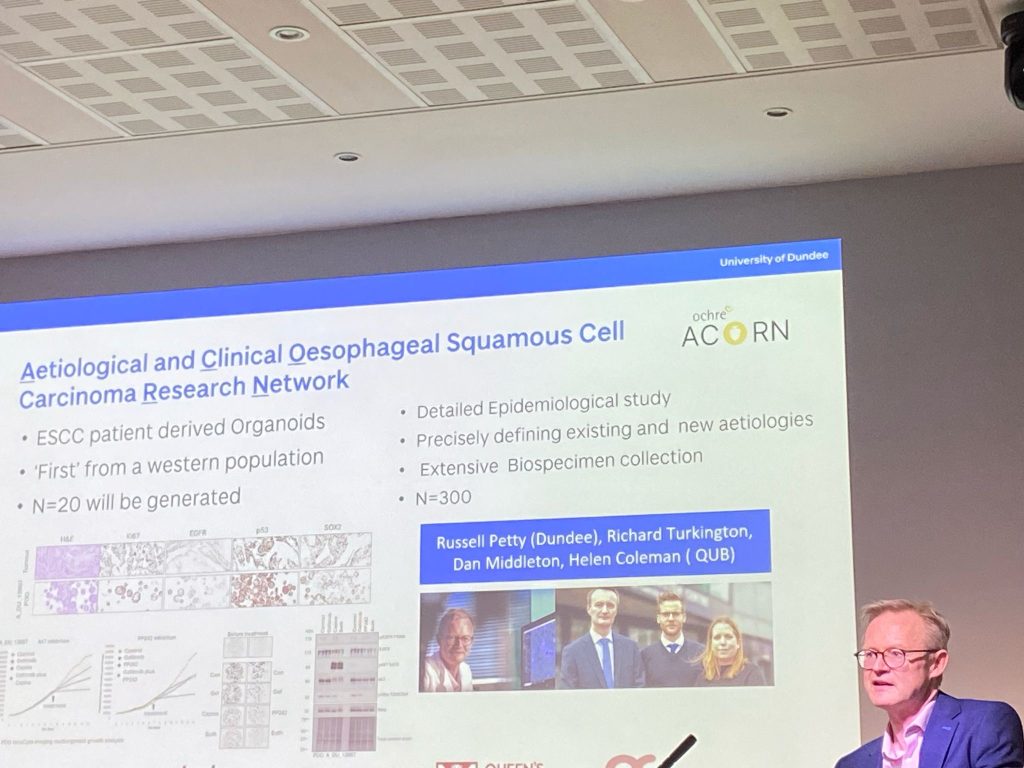Oesophageal cancer is one of the most aggressive and deadly cancers in the UK, with over 8,000 deaths each year. While much research has focused on oesophageal adenocarcinoma (OAC), a different form—oesophageal squamous cell carcinoma (OSCC)—affects around a third of UK patients.
OSCC is closely linked to social deprivation and lifestyle factors such as smoking and alcohol consumption, with particularly high incidence rates in Scotland, especially among women. Despite its significant impact, OSCC has become largely neglected in UK research nowadays, meaning that patients still have limited treatment options and poor survival rates.
Introducing ACORN: A New Hope for OSCC Patients
The Aetiological and Clinical OSCC Research Network (ACORN) is a flagship funding initiative by OCHRE that aims to change the outlook for OSCC patients by tackling key knowledge gaps. This groundbreaking project has two major goals:
Understanding the Causes of OSCC
Investigating how lifestyle, social factors, and environmental exposures contribute to OSCC risk, helping to develop better prevention and early detection strategies.
Improving Treatment Options
Creating the UK’s first patient-derived organoids for OSCC, which are miniature tumour models grown from patient samples. These will allow researchers to study how OSCC resists treatment and test new drug combinations to improve survival rates.
Groundbreaking Research with Real-World Impact
The Cancer Aetiology Self-Assessment Tool (CAN-SAT)
OSCC is strongly linked to social deprivation, but less is known about the specific factors that put people most at risk. The ACORN project will develop a new Cancer Aetiology Self-Assessment Tool (CAN-SAT), which will collect lifestyle and environmental data from OSCC patients in Scotland and Northern Ireland. By studying patterns in alcohol use, smoking, nutrition, and other risk factors, researchers will gain valuable insights into how OSCC develops and how it can be prevented.
Creating Patient-Derived Cancer Models
Current research into OSCC often relies on laboratory-grown cell lines derived from Asian populations, which may not accurately represent the disease in UK patients. ACORN will establish the first patient-derived organoids (PDOs) for OSCC in the UK, using tumour samples collected from patients in Scotland and Northern Ireland. These lab-grown models closely mimic real tumours, allowing scientists to test new drugs and understand how OSCC becomes resistant to treatment.
Developing More Effective Treatments
OSCC is difficult to treat, and drug resistance is a major barrier to improving survival rates. Using the new organoid models, researchers will explore promising drug combinations targeting key resistance mechanisms. This research could lead to clinical trials that provide OSCC patients with better, more effective treatments.
Leading Experts Unite for ACORN
The ACORN project brings together a team of leading experts in oncology, cancer epidemiology, and translational research from across the UK:
- Professor Russell Petty (University of Dundee, NHS Tayside) — A leading clinician-scientist specialising in oesophageal and gastric cancer research, with extensive experience in clinical trials and drug development.
- Dr Dan Middleton (Queen’s University Belfast) — An expert in cancer epidemiology, with a strong background in international studies on OSCC risk factors.
- Professor Helen Coleman (Queen’s University Belfast) — A renowned specialist in upper gastrointestinal cancer research, focusing on cancer prevention and early detection.
- Dr Richard Turkington (Queen’s University Belfast) — A highly trained clinical researcher focused on identifying genetic markers of drug resistance and improving personalised cancer treatment.
Building a Brighter Future
By creating a UK-wide research network, ACORN will provide valuable resources for scientists and cliniciansworking on OSCC, ensuring that this disease is no longer overlooked. The project will not only improve treatment options but also lay the groundwork for future research into prevention, early detection, and precision medicine.
By funding this ambitious initiative, OCHRE and its partners aim to transform OSCC research in the UK and bring new hope to patients facing this devastating disease. Through addressing both the causes and treatment of OSCC, ACORN represents a comprehensive approach to tackling one of the UK’s most challenging cancers.



